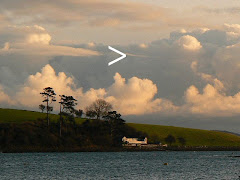If you ask the question, 'To what single person does Europe owe most in modern times?' no doubt many people, thinking of the Second World War as the moment of Europe's greatest peril, would come up with Winston Churchill or, if they take the wider view, Franklin Delano Roosevelt.
But another man, a career soldier, has just as strong a claim. He was born in Uniontown, Pennsylvania on 31st December 1880, one hundred and thirty years ago today. By all accounts he was a modest and decent man. He served with distinction in the First World War and rose steadily through the ranks of the US military to become Roosevelt's Chief of Staff in 1939. He made no secret of the fact that this appointment was a disappointment to him, that he would rather have served in the theatre of war; but if it's safe to say he would have been just as effective in overall command of Allied forces on the ground as Dwight D Eisenhower - the man who got the job - there was no doubt in the President's mind as to who would do the better job at home: the master of logistics, the big thinker, the soldier statesman, General George Catlett Marshall.
Churchill agreed, and after the war referred to Marshall as 'the organizer of victory'.
The reason, of course, that we are so indebted to Marshall is that in the immediate aftermath of the war, with Europe structurally and economically on its knees, he came up with, and steered through, a statistically dizzying financial rescue plan officially named the European Recovery Program but universally known as The Marshall Plan, which injected the European economy, between 1948 and 1951, with something over 13 billion dollars (around 100 billion dollars today).
The Marshall Plan was arguably the greatest act of national altruism in history, and earned its architect the Nobel Peace Prize in 1953.
Many European nations used the United States' extraordinary largesse to rebuild their shattered economies. The United Kingdom chose to establish something far more imaginative, something the US itself didn't possess, and still doesn't - the welfare state and the National Heath Service.
It may be hard for some to swallow but it's no exaggeration to say that we owe our NHS to what we used to call 'The Colonies', and especially to one quiet, methodical soldier, the logistical genius who surprised the western world with the depths of his vision and imagination - the man from Pennsylvania, George C. Marshall.















